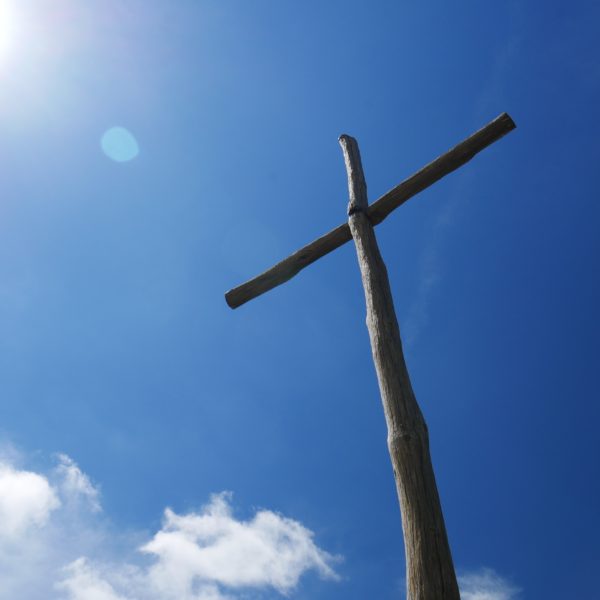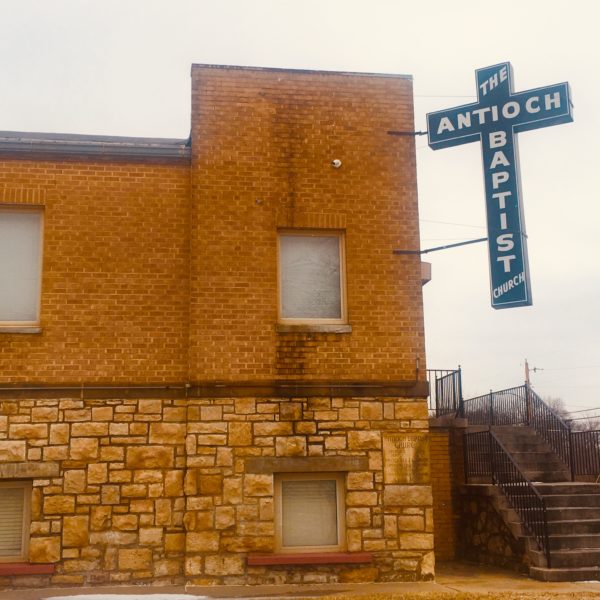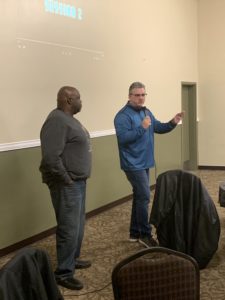A Defiant Act Of Praise
 Over 70% of the psalms in the Scriptures are a particular type of psalm called a lament. The western church does not utilize the lament all that often in worship. Why? The intensity of emotion that it captures. A lament reveals the rawest of emotions in language that most would never think to hear or say in church or towards God.
Over 70% of the psalms in the Scriptures are a particular type of psalm called a lament. The western church does not utilize the lament all that often in worship. Why? The intensity of emotion that it captures. A lament reveals the rawest of emotions in language that most would never think to hear or say in church or towards God.
I am weary with my moaning; every night I flood my bed with tears; I drench my couch with my weeping. Psalm 6:6
For your sake we face death all day long; we are considered as sheep to be slaughtered. Psalm 44:22
My God, My God! Why have you forsaken me? Psalm 22:1
Laments can be accusatory towards God. They reveal the deepest of sorrow, anger, and anguish. They were also a vital part of both private and public worship for the Hebrews. This heart-rendering, raw, emotive communication was core to their understanding of relating to God.
If you think about it, it makes sense. Who normally gets the rawest of emotions from us? Who normally gets the brunt of our frustration and anger? Whether they deserve it or not, those closest to us often get the full, unfiltered version of our feelings.
That’s exactly what we see with the laments. David. Job. Moses. Abraham. Elijah. All wrote and prayed laments to God. They are raw and real. There’s no holding back.
Here’s what is also there: The Defiant Act of Praise.
But I trust in your unfailing love; my heart rejoices in your salvation. Psalm 13:5
I will sing the LORD’s praise… Psalm 13:6
In every one of the laments, there is a moment where The Defiant Act of Praise rings out. What is this about? It’s about presence.
The Hebrews believed that God inhabited the praises of His people. To invite God into their hurt, they always followed their raw confession with raw praise. By doing this, they knew He was there.
I don’t think I can explain this mystery fully. There is something deeply profound and cathartic in pouring out your soul to God. All of it. The anger, the questions, the frustration, the hurt, the confusion, the anxiety, the sadness. It doesn’t seem to bother God to be the brunt of all of this. Then, by also defiantly choosing to praise Him in the middle of that mess, it’s almost as if that is the invitation for Him to enter into it. And He does.
I’ve experienced this. I’ve seen others experience this. It’s completely unexplainable but observable. There in the middle of the rawest of emotions, even anger towards God, He arrives.
In my misery.
In my pain.
In my lament.
What remains a holy mystery to me is how that in itself is enough. So many times, the circumstance isn’t changed. The hurting doesn’t stop. But something changes, something that I can’t exactly put my finger on. Maybe it’s me. Maybe it’s not.
Either way, there is an awareness of Him that makes it a Holy Moment, and that seems to be the ‘just enough’ I need.
And tomorrow, I will stand. With my lament. And with my defiant act of praise.
And He will be there.







 Sunday we wrapped up Daniel by looking at the visions and dreams section of the book. Admittedly, it’s one of the more bizarre sections of scripture. There’s no way around that. Apocalyptic literature is difficult to deal with.
Sunday we wrapped up Daniel by looking at the visions and dreams section of the book. Admittedly, it’s one of the more bizarre sections of scripture. There’s no way around that. Apocalyptic literature is difficult to deal with.
 This past weekend, 7 men from Antioch Baptist Church joined the 24 from Western Hills for the ManUp Conference. I haven’t laughed so hard or been that tired in a long time. I can’t tell all the stories here, but I’ll make you a deal. You hit me up for a coffee, and I promise you some juicy stories on Pastor TD, Raymond, Marlon, or André. (I’m looking at you, Antioch family!)
This past weekend, 7 men from Antioch Baptist Church joined the 24 from Western Hills for the ManUp Conference. I haven’t laughed so hard or been that tired in a long time. I can’t tell all the stories here, but I’ll make you a deal. You hit me up for a coffee, and I promise you some juicy stories on Pastor TD, Raymond, Marlon, or André. (I’m looking at you, Antioch family!)




 The Topeka Capital Journal ran an article last Saturday on this journey that TD and I have been taking. (I’ve written about how TD and I got connected before.) I’m pretty humbled that people are starting to take notice of what we are doing, but I hope a bigger story doesn’t get lost in all this attention.
The Topeka Capital Journal ran an article last Saturday on this journey that TD and I have been taking. (I’ve written about how TD and I got connected before.) I’m pretty humbled that people are starting to take notice of what we are doing, but I hope a bigger story doesn’t get lost in all this attention.

 My grandmother loved her Oldsmobile Delta ‘88: V8 engine, light blue, and roughly the size of an Abrams M1 tank. That car had a special place in her heart. I also remember the day my grandfather traded her beloved Oldsmobile Delta 88 for a 4-cylinder Chevy Citation about the size of her sewing machine.
My grandmother loved her Oldsmobile Delta ‘88: V8 engine, light blue, and roughly the size of an Abrams M1 tank. That car had a special place in her heart. I also remember the day my grandfather traded her beloved Oldsmobile Delta 88 for a 4-cylinder Chevy Citation about the size of her sewing machine.
 When Daniel and his buddies were hauled away to Babylon, the last thing on their mind had to be thinking of ways to prosper their new home. I’m guessing there were extreme bouts of depression, despair, and anger, as well as some incredibly passionate pleas to the Lord for rescue.
When Daniel and his buddies were hauled away to Babylon, the last thing on their mind had to be thinking of ways to prosper their new home. I’m guessing there were extreme bouts of depression, despair, and anger, as well as some incredibly passionate pleas to the Lord for rescue.